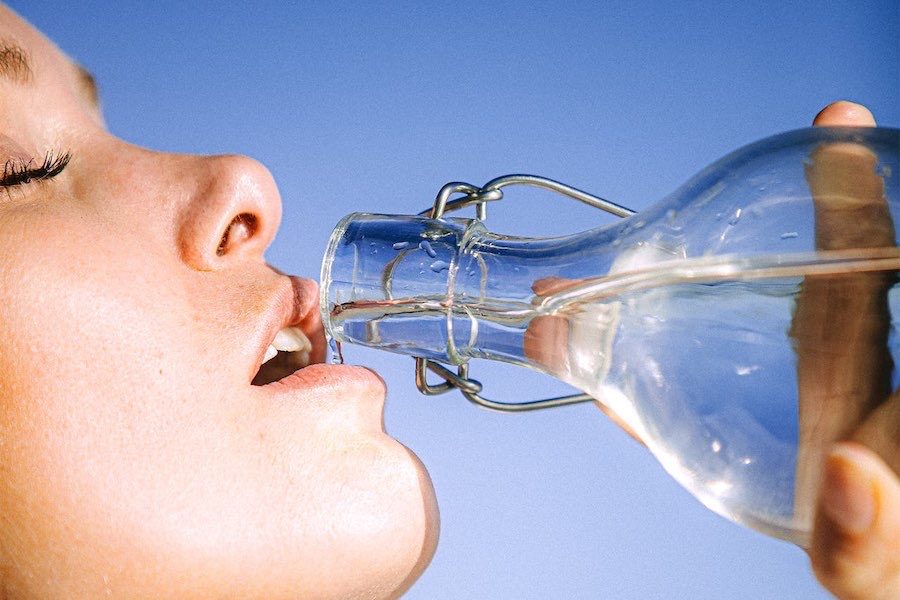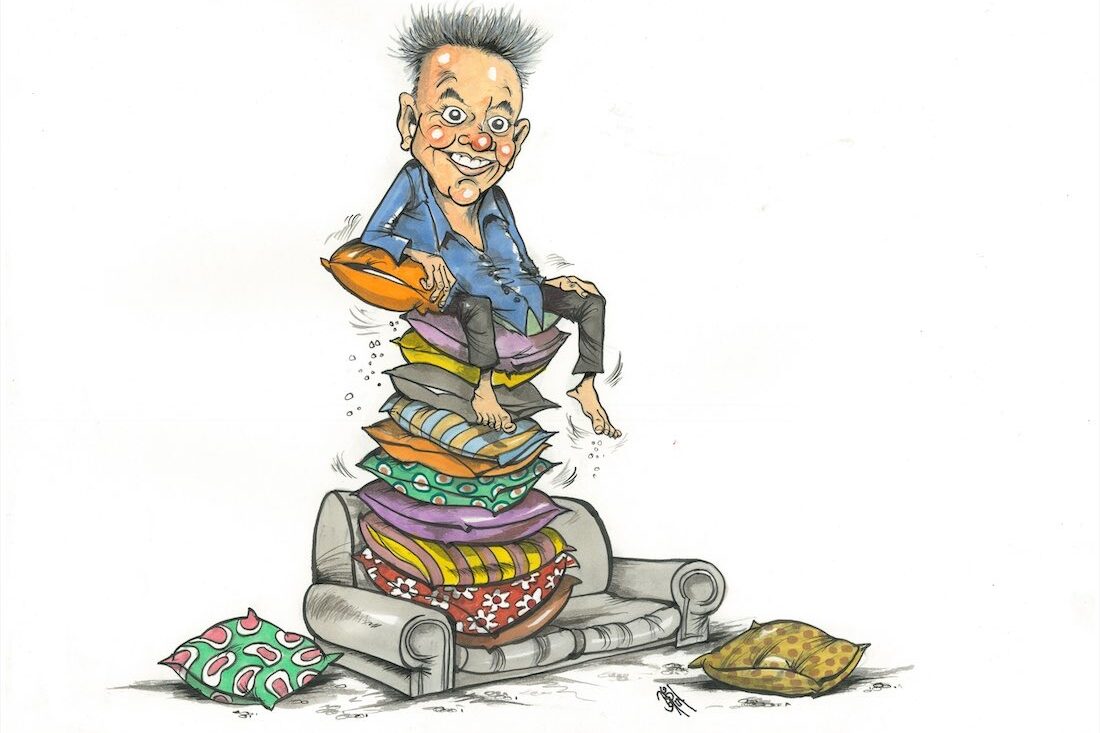
Is cold water bad for you? What about drinking from the hose or tap? OLIVER JONES reveals the facts behind five water myths
We know the importance of staying hydrated, especially in hot weather. But even for something as simple as a drink of water, conflicting advice and urban myths abound.
Is cold water really bad for your health? What about hot water from the tap? And what is “raw water”? Let’s dive in and find out.
Myth 1: Cold water is bad for you
Some recent TikToks have suggested cold water causes health problems by somehow “contracting blood vessels” and “restricting digestion”. There is little evidence for this.
While a 2001 study found 51 out of 669 women tested (7.6 per cent) got a headache after drinking cold water, most of them already suffered from migraines and the work hasn’t been repeated since.
Cold drinks were shown to cause discomfort in people with achalasia (a rare swallowing disorder) in 2012 but the study only had 12 participants.
For most people, the temperature you drink your water is down to personal preference and circumstances. Cold water after exercise in summer or hot water to relax in winter won’t make any difference to your overall health.
Myth 2: You shouldn’t drink hot tap water
This belief has a grain of scientific truth behind it. Hot water is generally a better solvent than cold water, so may dissolve metals and minerals from pipes better. Hot water is also often stored in tanks and may be heated and cooled many times. Bacteria and other disease-causing microorganisms tend to grow better in warm water and can build up over time.
It’s better to fill your cup from the cold tap and get hot water for drinks from the kettle.
Myth 3: Bottled water is better
While bottled water might be safer in certain parts of the world due to pollution of source water, there is no real advantage to drinking bottled water in Australia and similar countries.
According to University of Queensland researchers, bottled water is not safer than tap water. It may even be tap water. Most people can’t tell the difference either. Bottled water usually costs (substantially) more than turning on the tap and is worse for the environment.
What about lead in tap water? This problem hit the headlines after a public health emergency in Flint, Michigan, in the US. But Flint used lead pipes with a corrosion inhibitor (in this case orthophosphate) to keep lead from dissolving. Then the city switched water sources to one without a corrosion inhibitor. Lead levels rose and a public emergency was declared.
Fortunately, lead pipes haven’t been used in Australia since the 1930s. While lead might be present in some old plumbing products, it is unlikely to cause problems.
Myth 4: Raw water is naturally healthier
Some people bypass bottled and tap water, going straight to the source.
The “raw water” trend emerged a few years ago, encouraging people to drink from rivers, streams and lakes. There is even a website to help you find a local source.
Supporters say our ancestors drank spring water, so we should, too. However, our ancestors also often died from dysentery and cholera and their life expectancy was low.
While it is true even highly treated drinking water can contain low levels of things like microplastics, unless you live somewhere very remote, the risks of drinking untreated water are far higher as it is more likely to contain pollutants from the surrounding area.
Myth 5: It’s okay to drink directly from hoses
Tempting as it may be, it’s probably best not to drink from the hose when watering the plants. Water might have sat in there, in the warm sun for weeks or more potentially leading to bacterial build-up.
Similarly, while drinking water fountains are generally perfectly safe to use, they can contain a variety of bacteria. It’s useful (though not essential) to run them for a few seconds before you start to drink so as to get fresh water through the system rather than what might have been sat there for a while.
We are fortunate to be able to take safe drinking water for granted. Billions of people around the world are not so lucky.
So whether you like it hot or cold, or somewhere in between, feel free to enjoy a glass of water this summer.
Just don’t drink it from the hose.![]()
Oliver A.H. Jones, Professor of chemistry, RMIT University. Republished from The Conversation.
Who can be trusted?
In a world of spin and confusion, there’s never been a more important time to support independent journalism in Canberra.
If you trust our work online and want to enforce the power of independent voices, I invite you to make a small contribution.
Every dollar of support is invested back into our journalism to help keep citynews.com.au strong and free.
Thank you,
Ian Meikle, editor





Leave a Reply